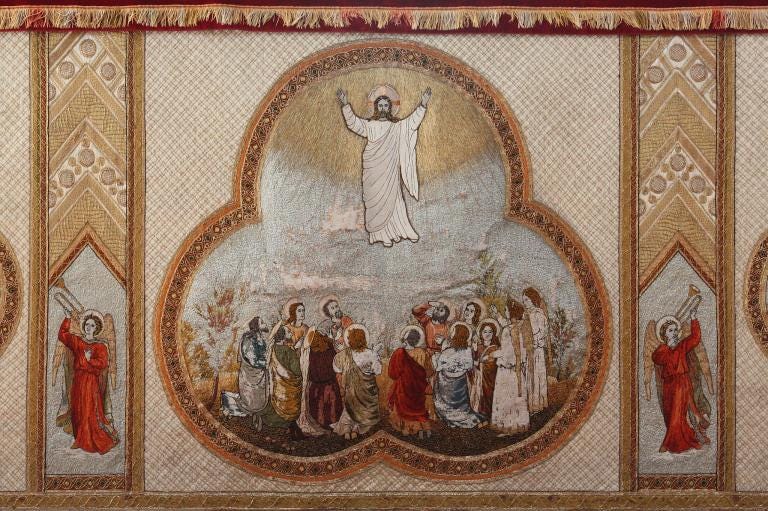This is really the third post in a series that examines some core fundamental beliefs, specifically around the nature of God, the nature and purpose of man, and soteriology1. In this article, we will give a high-level overview of what both religions believe is the ultimate purpose, or end goal, of mankind, where they are similar and where they may differ.
Terminology
The LDS faith is still very young, relatively speaking, and has a focus on teaching in a manner that everyone can understand and so it does not regularly employ technical terms like Deification or Theosis2, nor does it have a history or culture of using them. Thus, I want to define a few terms and guides to aid this discussion.
Orthodox Christians seem to use the terms "Deification" and "Theosis" interchangeably, so for the purposes of this article, I’m going to use the term Theosis so that we can keep the LDS and Orthodox concepts separate. The LDS church does not use the term theosis, and I’ve only rarely seen LDS scholars use the term “deification.” The closest concept in LDS thought is what is described as "Exaltation."
Both Theosis and Exaltation are at the heart of each religion.
Through this article, I wish to make a further distinction between God, - capital G - the Godhead (Father, Son, and Holy Spirit) and gods - lowercase g - the deified beings that we can become. I will attempt to keep them disambiguated.
Theosis
Theosis is the process of making man “divine” - we’ll come back to what that means. It’s also referred to as divinization or apotheosis. It refers to the idea that human beings can participate in the divine nature through God's grace and the work of the Holy Spirit. This means that believers can become united with God in a way that they share in His divine life, qualities, and attributes. This unity allows us to become one with God in a spiritual sense and experience a profound relationship with God.
However, all the orthodox material I’ve reviewed takes great pains to draw a sharp distinction between God and Man. It generally goes something like this: Humans are created beings that exist within time and space, subject to all of the natural laws of the universe. God is uncreated, existing outside of time and space, and not subject to all of the natural laws of the universe. Because we are fundamentally different types of beings, we can never become gods in the same way that God is God.
One analogy I’ve seen used a couple of times regarding theosis and the nature of God is that of a sword thrust into a fire until it takes on a red glow. The steel, while retaining its own properties, is interpenetrated by the heat energy of the fire. As steel, it cuts; but it also burns and glows like fire. The sword never becomes fire, but it picks up the properties of fire.
When we are joined to Christ, our humanity is interpenetrated with the energies of God through Christ's glorified body. Nourished by the Body and Blood of Christ, we partake of the grace of God - His strength, His righteousness, His love - thus we, being human, are becoming more like God.
2 Peter 1:3-4
3 as His divine power has given to us all things that pertain to life and godliness, through the knowledge of Him who called us by glory and virtue,
4 by which have been given to us exceedingly great and precious promises, that through these you may be partakers of the divine nature, having escaped the corruption that is in the world through lust.
But the bible says, “You are gods, and you are all sons of the Most High.” (Psalm 82:6) To make it even more confusing, St. Athanasius, an early church father3 said, “God became man so that men might become gods.” Mormons would heartily agree, while Protestants would recoil in horror with charges of pantheism and polytheism. While we cannot become God, and we cannot become exactly like him in his uncreated essence, we can become so like God that we can participate in his divine nature. An article on Theosis published on the website of the Antiochan Orthodox Christian Archdiocese of North America helps bring some clarity to what this means:




